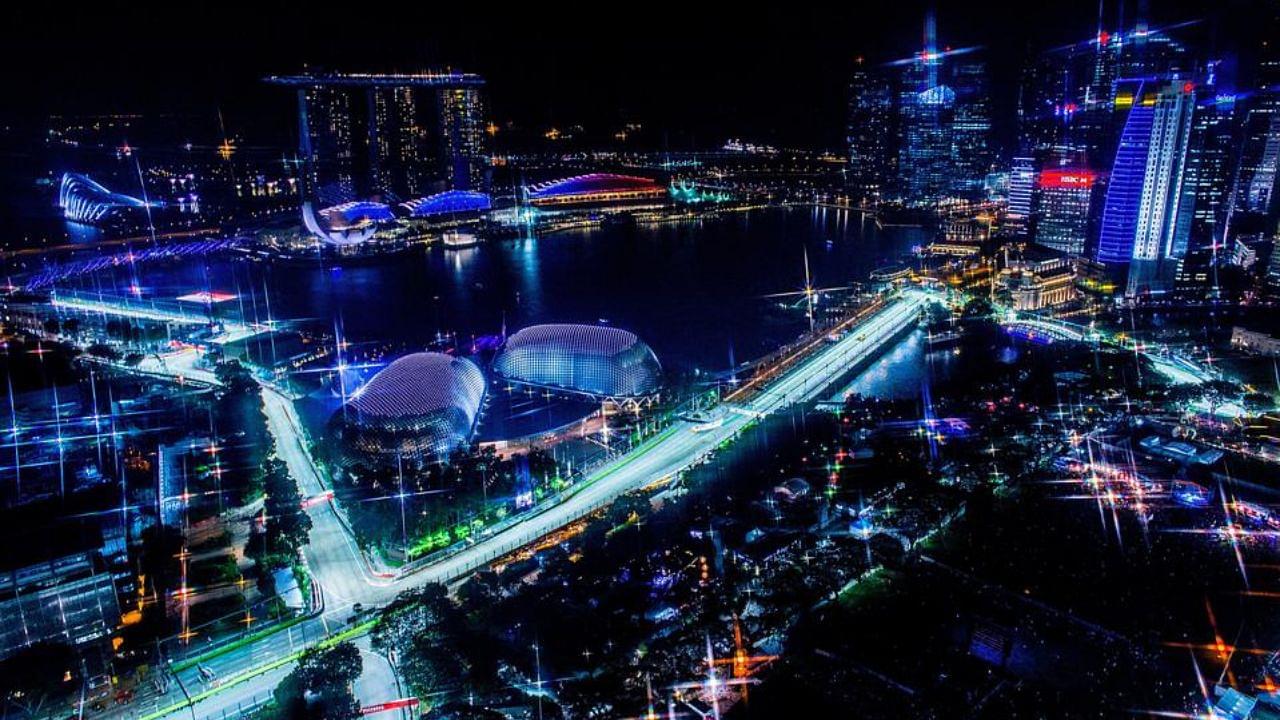Singapore GP has returned to the F1 calendar after two years with its eventful night race at the Marina Bay Street Circuit.
After two years off the F1 calendar due to the Covid-19 pandemic, Singapore GP is set to make a return this weekend.
History has shown that the night race at the Marina Bay Street Circuit always turns out to be eventful with its twisty track.
In 2008, the track also became home to one of the biggest scandals in the history of the sport known as the Crashgate. At the time, Fernando Alonso drove a Renault and his teammate Nelson Piquet Jr crashed deliberately which in turn beneffited the Spanish driver in his title run.
Returning to the F1 calendar, the track in Singapore has gone through multiple changes and has signed an extension of the contract to host the event until 2028.
It’s about time for the #SingaporeGP to get back on track 😫👏🏻 Some final preparations as we head into the long awaited race weekend tomorrow! 🤯 #SingaporeGP #F1nightrace pic.twitter.com/IuisdtHA39
— SingaporeGP (@F1NightRace) September 29, 2022
Reports show that on an average the cost to host an F1 event an year is $150 Million. But the Singapore government co-funds the 60% of the event with the remaining 40% inncurred by the airlines, hoteliers and others.
Taking up 60% of the cpst of hosting the event, the Singapore government spends $90 Million for organising the lights out at the Marina Bay Street Circuit.
Also Read: Fernando Alonso thinks Max Verstappen is in all-time greats with 2nd championship win
Singapore GP brings the most mental and physical challenge for the drivers
While the temperature might remain at 30 degrees, the humidity causes a lot of challenge for the drivers. On an average the humidity hits a sweaty weater with 80% but in the garage it gets even more humid.
On top of that the drivers have to wear their thick fireproof racesuits in the cockpit with the heat rising to 60 degrees, one can only imagine the physical and mental challenge of the drivers.
Storming around the circuit for 61 laps, the drivers lose up to 5kgs in weight. Dehydration also threatens the drivers and they don’t want to drink in the cockpit as the water gets too hot. The drivers even begin their sauna training weeks before the Singapore GP.
Also Read: Sergio Perez labels FIA’s decision of lowering tire blanket temperatures as ‘dangerous’




